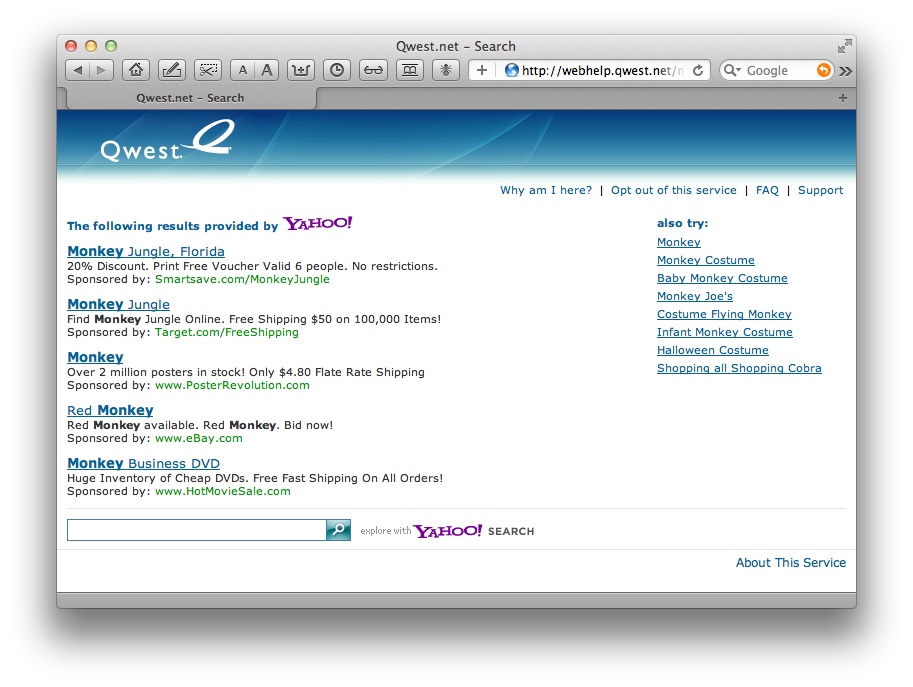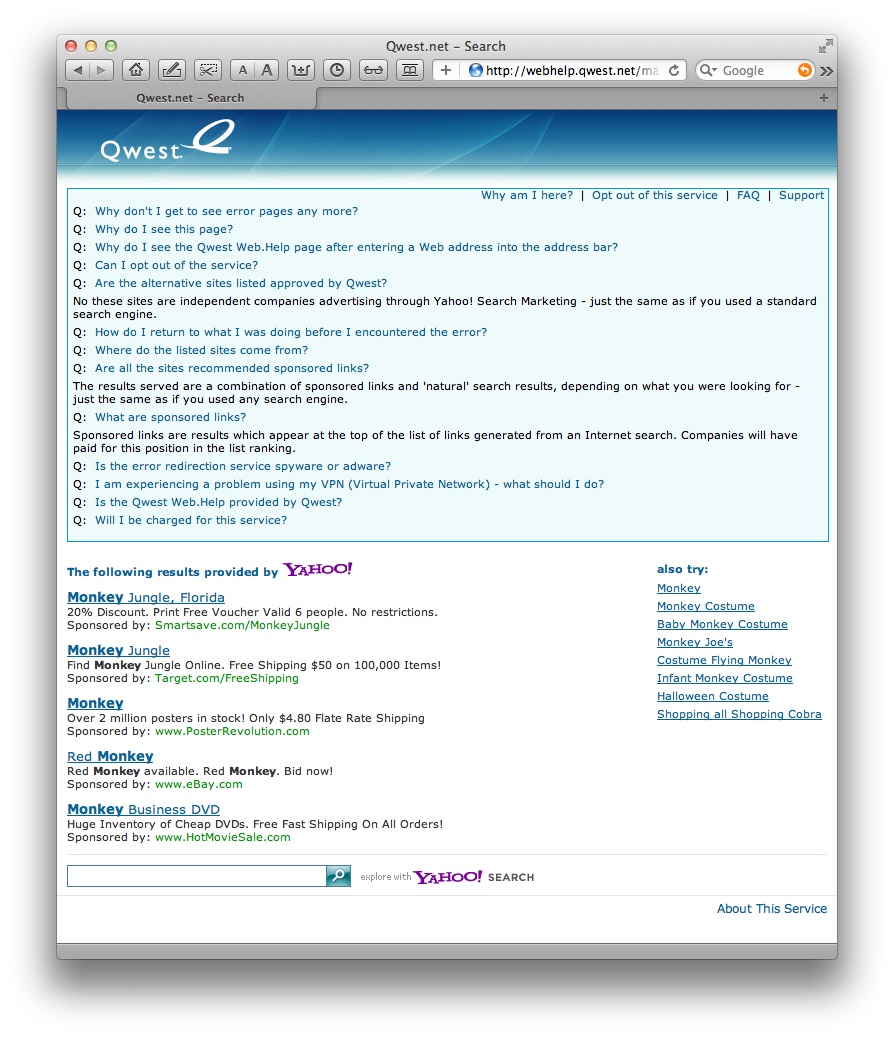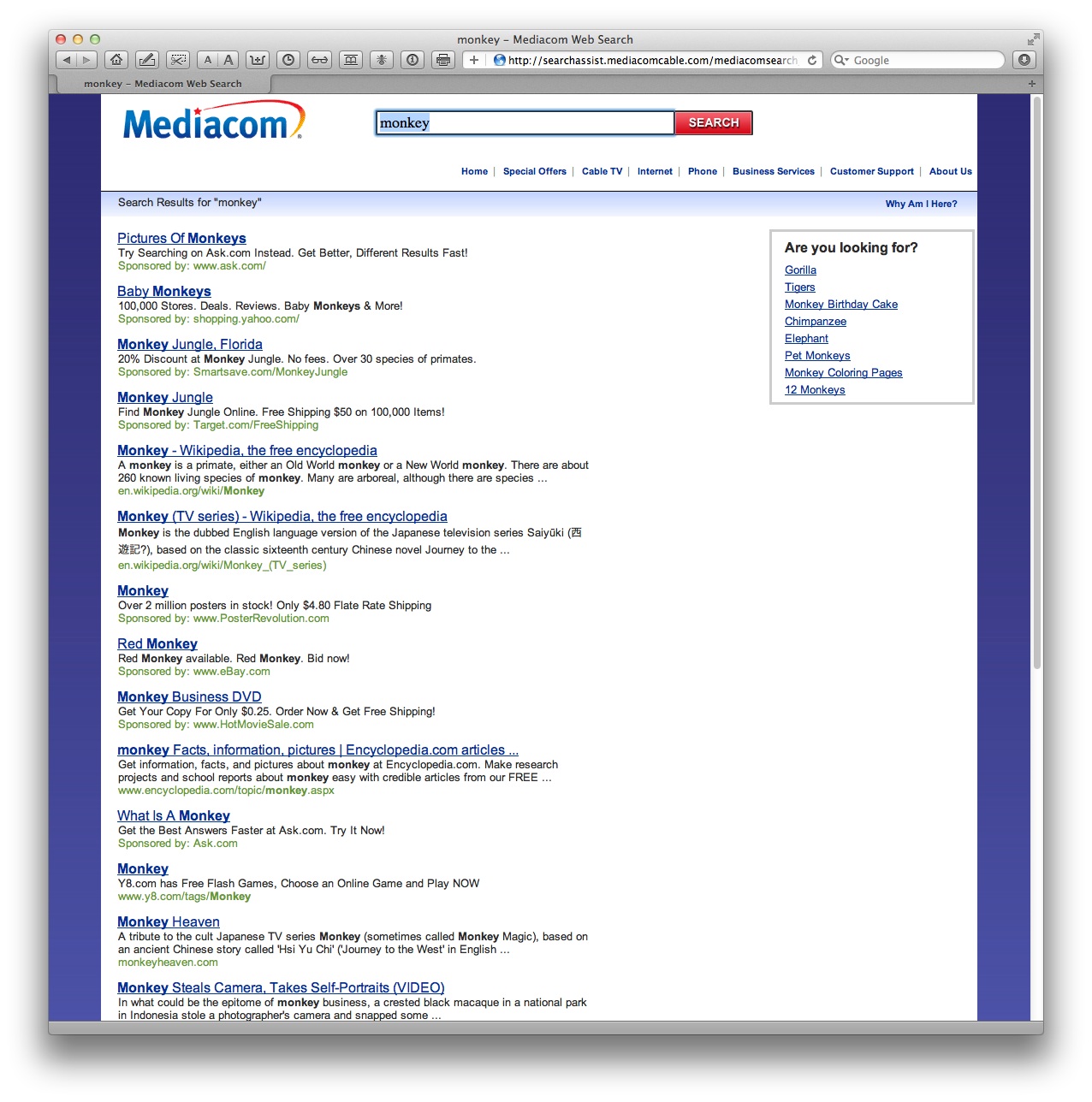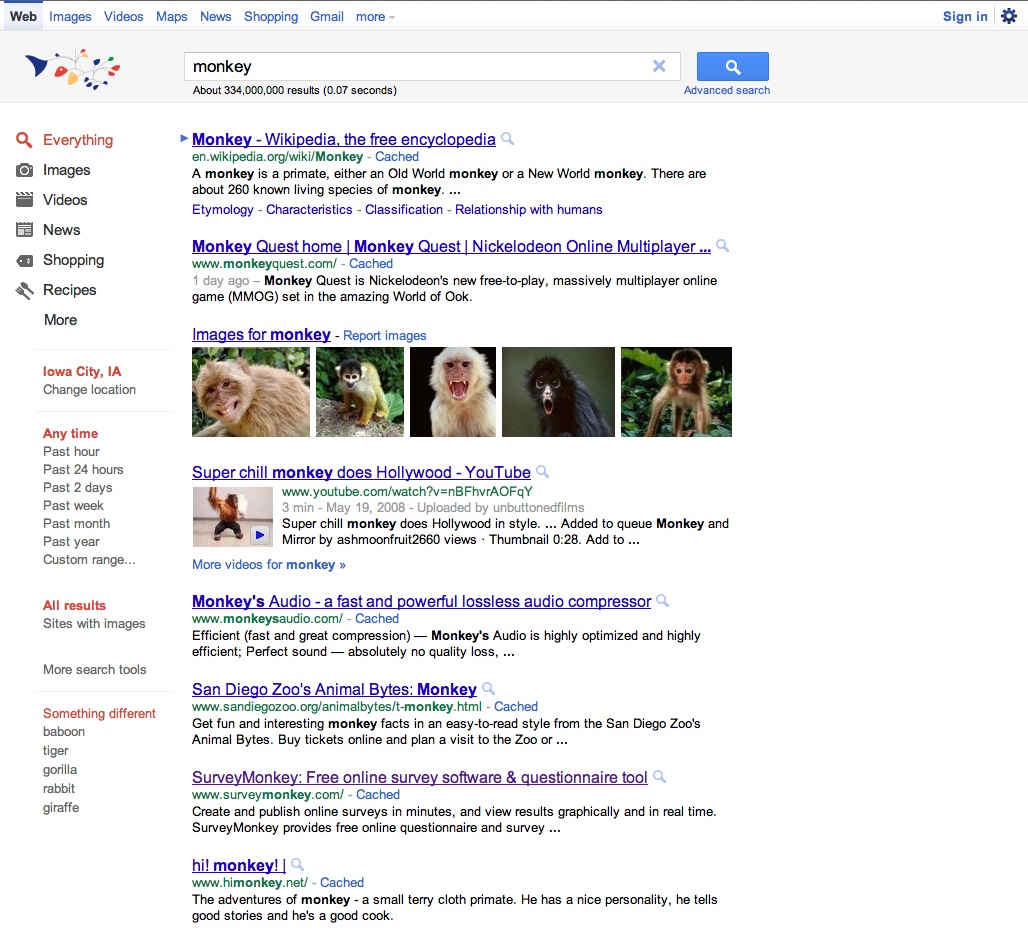Technology | Activism > Consumer Defense
![]() Summary. There’s nothing wrong with companies trying to make a little money, as long as they aren’t exploiting people in the process.
Summary. There’s nothing wrong with companies trying to make a little money, as long as they aren’t exploiting people in the process.
Typos = Profits. Internet service providers like Qwest.net and Mediacom (MCHSI) have figured out a way to intercept your Internet typos and turn that into profits.
How it Works. Usually when you type a website name wrong, or go to a page that no longer exists, you get a page not found message with other useful information to help you find what you’re looking for on that site. The page is tailored to that site. Instead, with Qwest or Mediacom, if you type a domain name wrong, or simply arrive on a website where a page no longer exists, you’ll be redirected to a commercialized fake search results page. This is similar to what malware, spyware, and viruses do when they hijacking browsers and redirect you to undesired (unrequested) content. What’s problematic about this is that the search results can contain links to malware, porn sites, or sites otherwise not safe for the entire family. Rather than providing the customer with the most helpful search results, they are selling their customers like cattle to the highest bidder. Instead of being presented with legitimate search results of reputable and safe organizations and companies that deserve to be listed, you get paid advertising. It’s not known if Qwest and Mediacom get kick-backs for ads listed, but one can presume they don’t provide advertising for free. The tagline for Qwest is “Spirit of Service” but it might be more accurate to say “Spirit of profit maximizing regardless of negative impact on customer experience.”
Qwest Web Help. Let’s say you’re trying to find a website with the word monkey in the name and you mistakenly type http://monkey and press enter. Qwest will produce the following page.
That page looks like a legitimate search result from Yahoo, but take a closer look at the results. They are all sponsored links (ads). Qwest is providing advertisements instead of legitimate search results.
If you click on the FAQ page, and explore some of the talking points, Qwest states that their search results are just like any other search engine that offers a mix of sponsored links with legitimate links. Yet, as you can see above, the results are entirely sponsored links. What makes matters worse is that these links aren’t approved by Qwest — meaning they take no responsibility for what shows up. So, you might get malware sites, hacking sites, and/or porn sites showing up. This ‘service’ is an ‘opt-out’ service, meaning that you’re signed up for it without your content and can only get out of the service when you request to do so.
Mediacom Web Search. Mediacom is no better than Qwest in this regard. Below is what Mediacom provides using the example from above. However, in the case of Mediacom, rather than disclosing their third party source for search results (Qwest uses Yahoo), no such information is offered. There’s a full list of search results, with sponsored links interwoven into the real results. While Mediacom is meeting the legal requirement to identify advertising, they are doing it in a deceptive way by intermingling it with real search results. According to the Federal Trade Commission, advertising is actually not supposed to be intermingled with genuine content. So, this is a violation of federal law, and deceives consumers, and it’s not in the customer’s best interest. Yet, because it makes a few extra pennies for Mediacom, they do it anyway.
Google Search. If Internet service providers are going to intercept customer’s typos, they could at least send them to a legitimate search engine like Google. When you do a Google search, there may be a few advertisements, but those are clearly marked, and very limited. The legitimate search results are provided and easy to identify.
Consumer Recommendation. Our recommendation is that you opt out of such services because they are misleading, deceptive, manipulative, exploitative, and potentially harmful for your computer and younger members of the household.
Business Recommendation. If you’re a business owner making decisions that will impact your customers. Ask yourself this simple question, “Is this product, service, or practice in the best interest of the customer and does it serve them better than any other option?” If the answer is no, then don’t do it. In the case of Qwest, Mediacom, and other Internet service providers, it’s best to have ‘opt-in’ features for customers if those features will disrupt or intercept their Internet experience — and a Google based search results page would be of much higher quality that what currently exists.



